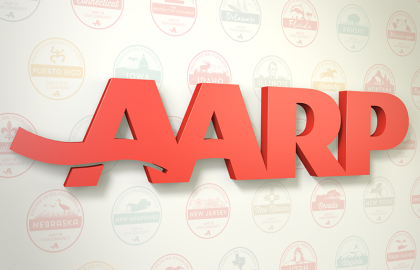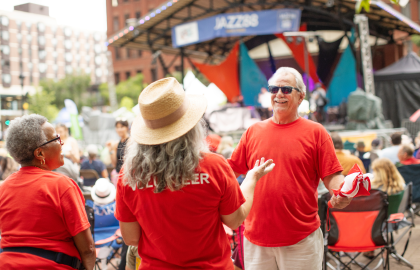AARP Eye Center
CLOSE ×
Search
Popular Searches
- right_container
- Health
- Money
- Work & Jobs
- Advocacy
- Social Security
- Medicare
- Caregiving
- Games
- Travel
- More...
News Feed for AARP in Tippo, MS
Discover AARP state and community news for Tippo
AARP Events SnapshotSM
Sign up today to get invites to free, fun & interactive online events.
I'M IN
-
AARP in Mississippi

Family Caregiver Resources for Mississippi
Posted on 09/05/25
No matter where you are in the caregiver journey, these local agencies and organizations can help make the… -
AARP in Mississippi

Social Security Ice Cream Social
Posted on 07/17/25
Scoop Social Security myths at the Social Security Ice Cream Social. Join us for a fun and informative day filled with… -
AARP in Mississippi

AARP Commits Thousands of Dollars to Strengthen 5 Communities Across Mississippi
Posted on 06/19/25
(Jackson, MS) – AARP has announced five organizations throughout Mississippi will receive 2025 Community Challenge… -
Scams & Fraud

Local events. Lasting connections.
Posted on 06/01/25
Sign up for email today so you never miss a moment. -
Scams & Fraud

Welcome to AARP Local - We're Glad You're Here!
Posted on 06/01/25
AARP Local isn’t just a website – it’s your community hub, where your voice matters, your priorities come to life, and… -
AARP in Mississippi

More Than 1 Million Americans Now Enrolled in Auto-IRA Programs
Posted on 05/08/25
More than one million private sector workers nationwide are now saving for retirement through state-facilitated… -
AARP in Mississippi

Caregiving Film, Discussion
Posted on 05/08/25
You're invited to join us for an educational outreach event focused on dementia and family caregiving. The evening will… -
AARP in Mississippi

Home Repair Scams
Posted on 05/08/25
For many folks, warmer weather is the time for home repairs. Unfortunately, shady contractors are out there looking for…
AARP Events for Tippo
-
AARP Theater: 'La Gazzetta'
Sunday, Dec 14, 2025 at 3:00 p.m. CT
Online Event
-
Boost Your Balance, Strengthen Those Joints!
Monday, Dec 15, 2025 at 10:00 a.m. CT
Zoom
Online Event
-
Fraud-Fighting Fraudlette: Holiday Scams
Monday, Dec 15, 2025 at 10:00 a.m. CT
Facebook and YouTube
Online Event

































































